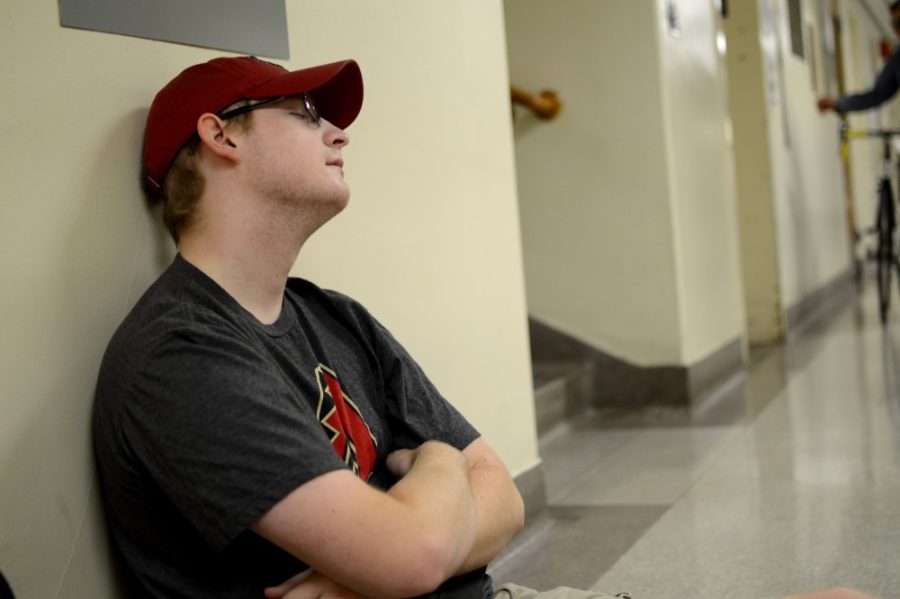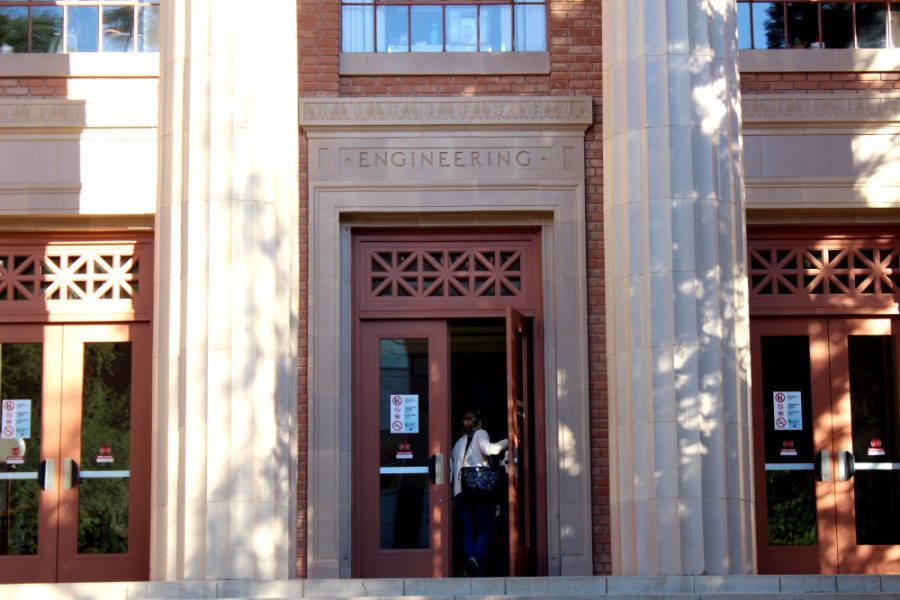When was the last time you got a solid eight hours of sleep?
A recent study cited by the University of Georgia states that on average, college students are getting close to around 6-6.9 hours of sleep per night.
For most of students that number sounds pretty familiar, for others getting six hours of sleep is a distant memory. With the pressure of a full or part-time job, course work and conflicting social schedules, it can be tempting to give up on getting a proper night’s rest altogether.
Michael Grandner, P.h.D. , assistant professor in psychiatry and director of the UA Sleep and Health Research Program counsels against this.
RELATED: De-stress from school, get out and see the Dogs of UA
Grandner said getting enough sleep is critical for college students.
“Sleep, nutrition and physical activity are the three pillars of health,” Grandner said. “They all support each other, and when any one of those is not very strong, you get problems with health and functioning.”
While it might be easy to acknowledge that not getting enough sleep is unpleasant—as anyone who’s pulled an all-nighter undoubtedly knows—what’s less apparent is the long-term health effects.
With that in mind, here’s a list of five ways lack of sleep impacts you:
1. Emotional Health: Sleep deprivation puts you at risk of depression and anxiety and leaves you emotionally drained. The daily stressors of life will cause you more distress than someone who isn’t sleep deprived.
2. Decision Making: William “Scott” Killgore, P.h.D. an Army research psychologist who studied the effects of sleep deprivation on soldiers for five years at the Walter Reed Army Institute of Research, found that sleep deprivation greatly impairs a person’s alertness, vigilance and moral decision making, as well as risk taking and cognitive performance.
3. Instability: Sleep impacts your ability to make rational decisions and can cause you to be emotionally unstable. You may find yourself feeling fine one minute, and angry or irritable the next.
4. Attention ‘lapses’: One of the scarier sides of sleep deprivation, attention lapses can occur at any time in a person who is sleep deprived, and often happens when it is least expected.
“You may feel perfectly fine, you’ve been up for 36 hours and you think you’re doing okay and then suddenly you just lapse out for a moment,” Killgore said, now a UA professor of psychiatry. “You have a blank spot that occurs where you just don’t process any information for 2-3 seconds.”
5. Relationships: Have you ever had a fight with your significant other in the middle of the night? That’s most likely because the ability to regulate your emotions is compromised when you don’t get enough sleep.
“We found in my research that sleep deprivation seems to affect the system in the brain that involves the ventromedial prefrontal cortex, [the] area right between your eyes and how it connects with more primitive areas of the brain like the amygdala,” Killgore said. “Those connections are altered when you’re sleep deprived, so you’re not able to regulate your emotions effectively.”
Now for the good part: Listed below are five simple ways to improve the quality and quantity of sleep you get each night.
1. Keep a regular bedtime and morning routine: Try to go to sleep and wake up at the same time every day. Your circadian rhythm, or internal clock, will reset itself, balancing out your levels of alertness and drowsiness.
2. Don’t do anything in your bed that isn’t sleeping: That includes eating, homework, Netflix, etc. Train your brain to associate sleeping with your bed to maximize the benefits of sleep each night.
RELATED: Don’t let the stress of the semester creep up on you this semester, CAPS is there to help
3. Get out and smell the roses: Killgore suggests exposing yourself to 30 minutes of bright light in the morning to help activate your levels of alertness. Conversely, try to avoid screen light (laptops, phone, tablets etc.) up to 30 minutes before bed, as this can affect the levels of melatonin in your body.
4. Avoid naps: Our bodies create something called ‘sleep pressure,’ which increases throughout the day until you go to bed. By taking a nap, you release some of that pressure and run the risk of being unable to fall asleep at night.
5. Avoid drinking too much before bedtime: This should be fairly self-explanatory, as no one enjoys stumbling through the dark for a midnight trip to the bathroom. Grandner also counsels against using alcohol as a means of falling asleep. He said It may help you fall asleep, but it causes a shallow sleep that doesn’t provide your body with the rest it craves.
If you’re interested in learning more about the effects sleep has on your body, make sure to check back here in December for the results of the NCAA-funded sleep study run by Grander, who is currently testing student athletes and the consequences of sleep deprivation.
Follow Hannah Dahl on Twitter.















